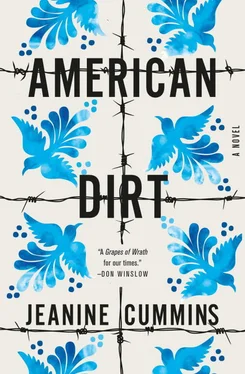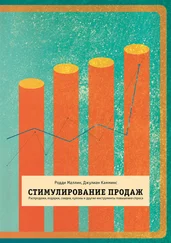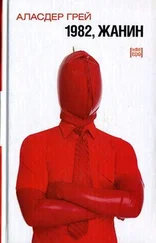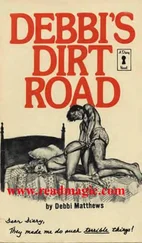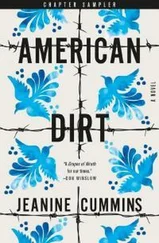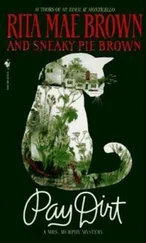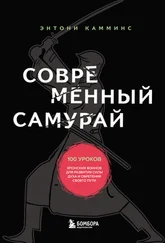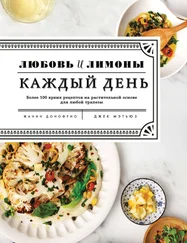Жанин Камминс - American Dirt
Здесь есть возможность читать онлайн «Жанин Камминс - American Dirt» весь текст электронной книги совершенно бесплатно (целиком полную версию без сокращений). В некоторых случаях можно слушать аудио, скачать через торрент в формате fb2 и присутствует краткое содержание. Город: London, Год выпуска: 2020, ISBN: 2020, Издательство: Tinder Press, Жанр: Современная проза, на английском языке. Описание произведения, (предисловие) а так же отзывы посетителей доступны на портале библиотеки ЛибКат.
- Название:American Dirt
- Автор:
- Издательство:Tinder Press
- Жанр:
- Год:2020
- Город:London
- ISBN:978-1-4722-6138-0
- Рейтинг книги:5 / 5. Голосов: 1
-
Избранное:Добавить в избранное
- Отзывы:
-
Ваша оценка:
- 100
- 1
- 2
- 3
- 4
- 5
American Dirt: краткое содержание, описание и аннотация
Предлагаем к чтению аннотацию, описание, краткое содержание или предисловие (зависит от того, что написал сам автор книги «American Dirt»). Если вы не нашли необходимую информацию о книге — напишите в комментариях, мы постараемся отыскать её.
FEAR KEEPS THEM RUNNING.
HOPE KEEPS THEM ALIVE.
Vivid, visceral, utterly compelling, AMERICAN DIRT is the first novel to explore the experience of attempting to illegally cross the US-Mexico border. cite empty-line
9
empty-line
11 empty-line
14
American Dirt — читать онлайн бесплатно полную книгу (весь текст) целиком
Ниже представлен текст книги, разбитый по страницам. Система сохранения места последней прочитанной страницы, позволяет с удобством читать онлайн бесплатно книгу «American Dirt», без необходимости каждый раз заново искать на чём Вы остановились. Поставьте закладку, и сможете в любой момент перейти на страницу, на которой закончили чтение.
Интервал:
Закладка:
So yes, Lydia is grateful that sixteen of her loved ones were killed by the quick, clinical dispatch of bullets. The officers in the yard avert their eyes from her, and she feels grateful for that, too. The crime scene photographer sets his camera down on the table beside the drink that still bears a smudge of Lydia’s truffle-colored lipstick on its rim. The ice cubes have melted inside, and there’s a small puddle of condensation on the napkin around her glass. It’s still wet, and that feels impossible to Lydia, that her life could be shattered so completely in less time than it takes for a ring of condensation to evaporate into the atmosphere. She’s aware that a deferential hush has fallen over the patio. She moves to Sebastián’s side without standing. She crawls on hands and knees, and then hesitates, staring at his one outstretched hand, the ridges and lines of his knuckles, the perfect half-moons of his nail beds. The fingers do not move. The wedding band is inert. His eyes are closed, and Lydia wonders, absurdly, if he closed them on purpose, for her, a final act of tenderness, so that when she found him, she wouldn’t have to observe the vacancy there. She claps a hand over her mouth because she has a feeling the essential part of herself might fall out. She shoves the feeling down, tucks her fingers into the fold of that unresponsive hand, and allows herself to lean gently across his chest. He is cold already. He is cold. Sebastián is gone, and what’s left is only the beloved, familiar shape of him, empty of breath.
She places her hand on his jaw, his chin. She closes her mouth very tightly and places her palm against the coolness of his forehead. The first time she ever saw him, he was slouched over a spiral notebook in a library in Mexico City, pen in hand. The tilt of his shoulders, the fullness of his mouth. He was wearing a purple T-shirt, some band she didn’t know. She understands now that it wasn’t the body but the way he animated it that had thrilled her. The flagstones press into her knees while she covers him with prayers. Her tears are spasmodic. The bent spatula sits in a puddle of congealed blood, and the flat part still bears a smudge of uncooked meat. Lydia fights a roll of nausea, slips her hand into her husband’s pocket, and retrieves his keys. How many times during their life together has she slipped her hand into his pocket? Don’t think it, don’t think it, don’t think. It’s difficult to remove his wedding ring. The loose skin of his knuckle scrunches up beneath the band so she has to twist it, she has to use one hand to straighten his finger and the other to twist the ring, and in this way, at last, she has his wedding band, the one she placed on his finger at the Catedral de Nuestra Señora de la Soledad more than ten years ago. She slips it onto her thumb, places both hands on the crate of his chest, and pushes herself to her feet. She lurches away, waiting for someone to challenge her for the items she took. She almost wants someone to say she can’t have them, that she can’t tamper with evidence or some horseshit like that. How satisfying it might be, momentarily, to have a direct receptacle for some lashing belt of her rage. No one dares.
Lydia stands with her shoulders loose to the earth. Her mother. She moves toward Abuela, whose body is one of those now loosely covered with black plastic. An officer steps to intercept her.
‘Señora , please,’ he says simply.
Lydia looks at him wildly. ‘I need a last moment with my mother.’
He shakes his head once, the slightest movement. His voice is soft. ‘I assure you,’ he says, ‘that is not your mother.’
Lydia blinks, unmoving, her husband’s car keys gripped in the vise of her hand. He’s right. She could spend more time in this landscape of carnage, but why? They are all gone. This is not what she wants to remember of them. She turns away from the sixteen horizontal shapes in the yard and, with a squeak and a bang, passes through the doorway into the kitchen. Outside, the officials resume their activities.
Lydia opens the closet in her mother’s bedroom and withdraws Abuela’s solitary piece of luggage: a small red overnight bag. Lydia unzips it and finds that it’s full of smaller purses. It’s a bag of bags. She dumps them on the bed, opens her mother’s nightstand, pulls a rosary and a small prayer book from the drawer, and puts them in the overnight bag along with Sebastián’s keys. Then she stoops down and sticks her arm beneath her mother’s mattress. She sweeps it back and forth until her fingertips brush a fold of paper. Lydia pulls the wad out: almost 15,000 pesos. She puts them in the bag. She throws the pile of small purses back in her mother’s closet, takes the bag to the bathroom, opens the medicine cabinet, and grabs what she can – a hairbrush, a toothbrush, toothpaste, moisturizer, a tube of lip balm, a pair of tweezers. They all go into the bag. She does all this without thinking, without really considering which items might be helpful or useless. She does it because she can’t think of what else to do. Lydia and her mother are the same shoe size, a small blessing. Lydia takes the only pair of comfortable shoes from her mother’s closet – quilted gold lamé sneakers with a zipper on one side that Abuela wore for gardening. In the kitchen, the raid continues: a sleeve of cookies, a tin of peanuts, two bags of chips, all surreptitiously stuffed into the bag. Her mother’s purse hangs on a hook behind the kitchen door, alongside two other hooks that hold Abuela’s apron and her favorite teal sweater. Lydia takes the purse down and looks inside. It feels like opening her mother’s mouth. It’s too personal in there. Lydia takes the whole thing, folds the softened brown leather into the end pocket of the overnight bag, and zips it in.
The detective is sitting beside Luca on the couch when Lydia returns, but he’s not asking questions. His pad and pencil are resigned on the coffee table.
‘We have to go,’ she says.
Luca stands without waiting to be told.
The detective stands, too. ‘I must caution you against returning home right now, señora,’ he says. ‘It may not be safe. If you wait here, perhaps one of my men can drive you. We might find a secure location for you and your son?’
Lydia smiles, and there’s a brief astonishment that her face can still make those shapes. A small puff of laughter. ‘I like our chances better without your assistance.’
The detective frowns at her but nods. ‘You have somewhere safe to go?’
‘Please don’t concern yourself with our well-being,’ she says. ‘Serve justice. Worry about that.’ She’s aware that the words are leaving her mouth like tiny, unpoisoned darts, as futile as they are angry. She makes no effort to censor herself.
The detective stands with his hands in his pockets and frowns toward the floor. ‘I’m so sorry for your loss. Truly. I know how it must look, every murder going unsolved, but there are people who still care, who are horrified by this violence. Please know I will try.’ He, too, understands the uselessness of his words, but he feels compelled to tender them nonetheless. He reaches into his breast pocket and pulls out a card with his name and phone number on it. ‘We will need an official statement when you’re feeling up to it. Take a few days if you need.’
He proffers the card, but Lydia makes no move to take it, so Luca reaches up and grabs it. He’s maneuvered himself in close beside his mother, laced one arm behind her through the strap of the red overnight bag.
This time, the detective doesn’t follow them. Their shadows move as one lumpy beast along the sidewalk. Beneath the windshield wiper of their car, an instantly recognizable orange 1974 Volkswagen Beetle, there is a tiny slip of paper, so small that it doesn’t even flit in the hot breeze that gusts up the street.
Читать дальшеИнтервал:
Закладка:
Похожие книги на «American Dirt»
Представляем Вашему вниманию похожие книги на «American Dirt» списком для выбора. Мы отобрали схожую по названию и смыслу литературу в надежде предоставить читателям больше вариантов отыскать новые, интересные, ещё непрочитанные произведения.
Обсуждение, отзывы о книге «American Dirt» и просто собственные мнения читателей. Оставьте ваши комментарии, напишите, что Вы думаете о произведении, его смысле или главных героях. Укажите что конкретно понравилось, а что нет, и почему Вы так считаете.
